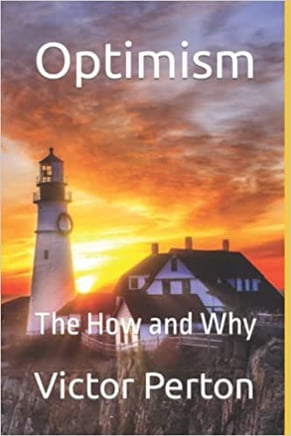Tragic Optimism
"The most powerful arguments in favour of a "tragic optimism" are those which in Latin are called argument ad hominem." (Viktor Frankl)
Tragic optimism is a concept developed by psychotherapist and Holocaust survivor Viktor Frankl. It asserts that even in the face of suffering, individuals can find meaning and purpose in life, maintaining hope and optimism even in the most challenging circumstances.
This philosophy emphasises that optimism is not the absence of hardship but rather a resilient engagement with life's challenges.
In his postscript to Man's Search for Meaning, Frankl defined tragic optimism as "being optimistic in spite of the 'tragic triad,'" a set of three inevitable aspects of human existence as understood in logotherapy: (1) pain, (2) guilt, and (3) death. The concept originated from Frankl's lecture at the Third World Congress of Logotherapy in 1983, where he stated, "What matters is to make the best of any given situation. 'The best,' however, is that which in Latin is called optimum—hence the reason I speak of a tragic optimism."
This form of optimism has three core dimensions:
- Turning suffering into a human achievement and accomplishment.
- Deriving from guilt the opportunity to change oneself for the better.
- Viewing life's transitoriness as an incentive to take responsible action.
Frankl's philosophy is deeply rooted in his harrowing experiences in Nazi concentration camps, where he witnessed unspeakable atrocities and endured unimaginable suffering. He observed that those who could find meaning in their suffering were more likely to survive and even thrive in adversity. From these observations, he developed logotherapy, a therapeutic approach that centres on the search for meaning and purpose as key elements of psychological well-being.
Tragic optimism highlights that optimism does not merely endure in the face of tragedy but often emerges from it. While painful, suffering becomes a catalyst for personal growth and transformation when met with courage and purpose. This optimism is not a denial of reality but a realistic engagement with life's hardships, grounded in the belief that adversity carries the potential for meaning and growth.
In this way, tragic optimism invites us to embrace life's challenges, not as insurmountable barriers but as opportunities for growth, reflection, and the deepening of human potential. Frankl's insights remind us that hope and meaning remain within reach even in the darkest moments, empowering us to live with resilience and purpose.
Evarist Bartolo, former Maltese foreign and education minister in "Tragic Optimism"
"We must let Frankl’s tragic optimism guide our approach to life.
"Frankl believes that while we do not choose the historical circumstances of our life, we can choose how to respond to them by “the ability to maintain hope and find meaning in life, despite its inescapable pain, loss, and suffering.”
"As he says: For the world is in a bad state, but everything will become still worse unless each of us does his best." (2023)
Song Oh Hyun, Best Language School
"Tragic optimism means acknowledging, accepting, and even anticipating the fact that life involves hardship and hurt. Then you do everything you can to move forward with a positive attitude. This emotional flexibility is related to resilience." (2024)
Susanna Schrobs in "What Is 'Tragic Optimism' and Can It Help Us Make Sense Of This Moment?"
"If Frankl and Gotlib are correct, it’s possible to have optimism in the face of collective tragedies, comprehend our lack of control over the future, and still kindle optimism about our ability to find connection and purpose."
Nora McInerny in "Tragic Optimism"
"That’s the work of Tragic Optimism, I think? To give yourself a purpose. To turn despair into action, however small that action may seem, however hopeless it might seem to bother to be a decent person."
Thomas Merton
"We must remember that Christian optimism is not a perpetual sense of euphoria, an indefectible comfort in whose presence neither anguish nor tragedy can possibly exist. We must not strive to maintain a climate of optimism by the mere suppression of tragic realities. Christian optimism lies in a hope of victory that transcends all tragedy: a victory in which we pass beyond tragedy to glory with Christ crucified and risen."
Ron Jones
“There is hope. My own view of leadership is that what separates leaders from managers is the focus on 'purpose': defining purpose for ourselves, for our organisations and for our community is the essence of what shapes the future. No-one leads for the past - they lead for the future. So the very nature of leadership is that it is something we can all contribute to according to our purpose. When each of us is asked to express our purpose it seems to me that this cannot be done without being optimistic. Even where the circumstances or events that we face are in themselves tragic, there is an emergence of ourselves as better able to learn from the experience to shape a better future.”
Nikki Hutley, Economics for a more Equitable and Sustainable World
"I have to confess I'm not always optimistic. But it's often at the bleakest of times that we see the best of humanity. In the end, I think it's seeing others striving to make the world a better place, inch by inch, that keeps me optimistic and motivated."
Read more of these inspiring quotable quotes in "Optimism: The How and Why" by Victor Perton, CEO of The Centre for Optimism.
Victor Perton
Generally, optimists attract other optimists, and those other optimists will boost your own optimism, joy and happiness. It can become a virtuous circle, but you first need to seek it out or set it up.
Victor Perton in "Optimism: The How and Why"
"Rigorous studies demonstrate that gratitude journaling and expressing thanks can increase one’s happiness. It improves mental health, and increases happiness, life satisfaction, joy and optimism. In addition, it improves physical health through better sleep, reduced anxiety and lower levels of inflammation."
 Project Optimism has produced "The Optimist's Gratitude Journal: 100 days to share and develop your gratitude" which is very helpful.
Project Optimism has produced "The Optimist's Gratitude Journal: 100 days to share and develop your gratitude" which is very helpful.
See https://www.amazon.com/Optimists-Gratitude-Journal-develop-gratitude/dp/B09MC5ZNPX



.svg)